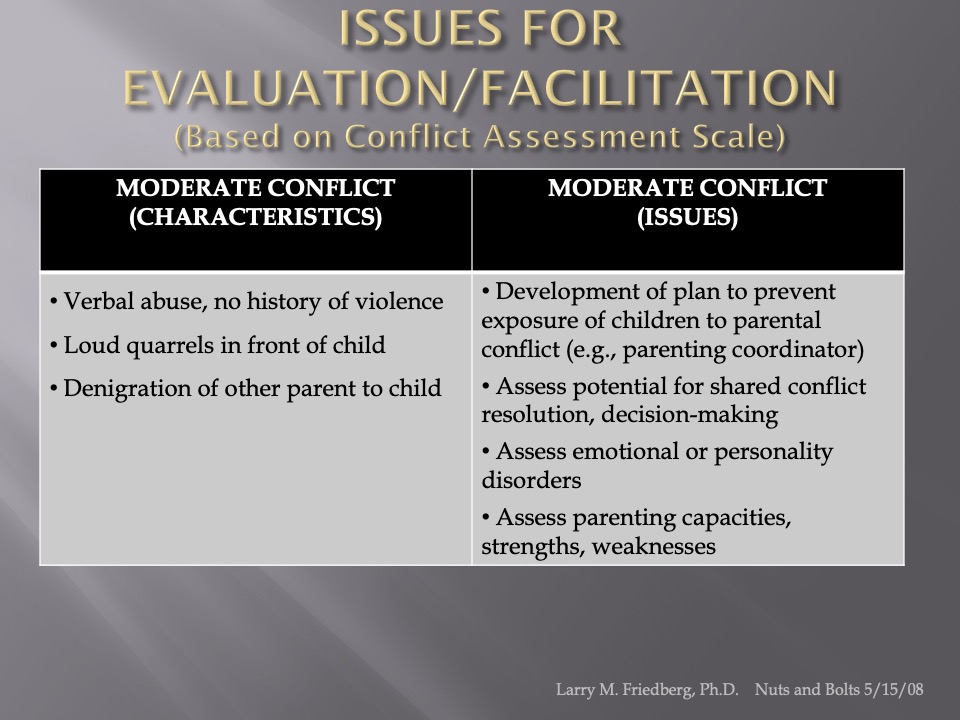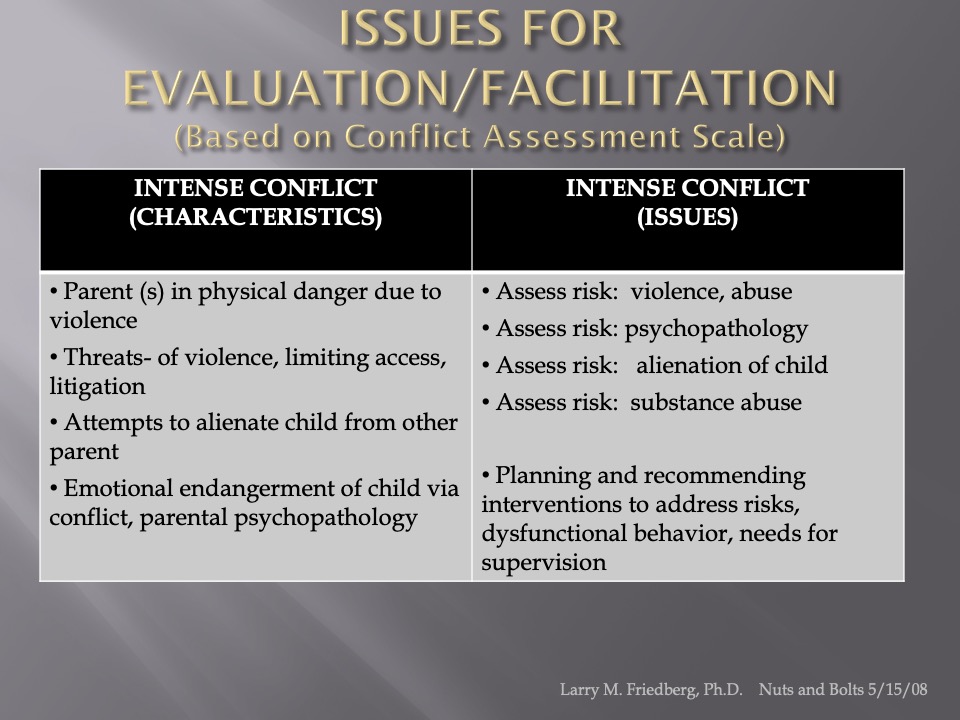Moderate Conflict
In cases of moderate conflict there is a real issue of whether to facilitate or to evaluate, which needs to be assessed on a case-by-case basis.

The children are being placed in the middle of their parents’ conflicts, and/or there are significant questions about one or the other parent — or both– in terms of their parenting capacities or liabilities, their relationship with their children, and whether or not a psychological problem is a long-term or temporary one.
These parents don’t let up when told that their arguing in front of the children, or bad-mouthing the other parent to the children, is bad for the kids. This may continue even though we convey a message from the kids to their parents that their fighting is upsetting the children. Such parents need to blame one another, and don’t take responsibility for problems. The children may take sides in their parents’ conflicts, especially if they are preteens or teens. Or, they may have problems with a parent based on that parent’s real disturbing behavior.
Sometimes in these cases we get a very specific referral, e.g. a referral simply to evaluate the psychological functioning of each parent.
In other cases, the parties are willing to work things out if they have access to a parenting coordinator who serves as a buffer for communication, or as an advisor to the court in the event of future problems.
In still other instances, these parents are determined to fight and their attorneys need a custody evaluation to get the case settled on the basis of the evaluator’s recommendations. In the majority of such cases, 80 to 90 percent, the parties do settle after getting a recommendation from an evaluator.
Intense Conflict
At the intense conflict point in the spectrum, there is little capacity to resolve even the easiest disputes. A party is out for blood and is taking no prisoners. The other party may be just as hostile and inappropriate, or may be a victim of an aggressive, abusive and/or vindictive character.

The children are caught in a very unhealthy environment. One parent or both is unconcerned about the risk of their own behavior to the children. They can only see the “badness” of the other parent. Their blame and or paranoia justifies teaching the children that the other parent is bad.
In this category are families with issues of possible substance abuse or other psychological problems, parents who may have physically or emotionally abused their children, and parents who may have emotional problems which threaten their children’s well-being.
Also in this category are cases where children are estranged from a parent. In such cases, the key issue is the basis of their estrangement:
Is there pressure on the children to take sides, have they been provided with information designed to spoil their relationship with the estranged parent, and/or has there been real behavior by the estranged parent which pushed them away?
What we typically do in such cases is not just to advise the court on parenting time and custody, if we are ordered to do so; also, we need to recommend specific solutions to the problems which are found, like: a) how to set up exchanges to minimize contact between the parties; b) whether or not to use a parenting coordinator or GAL to act as a guardian angel, watching over these children in the future; c) determining treatment needs; d) determining needs for supervision of parenting time; or e) recommending specific interventions to deal with alienated children.